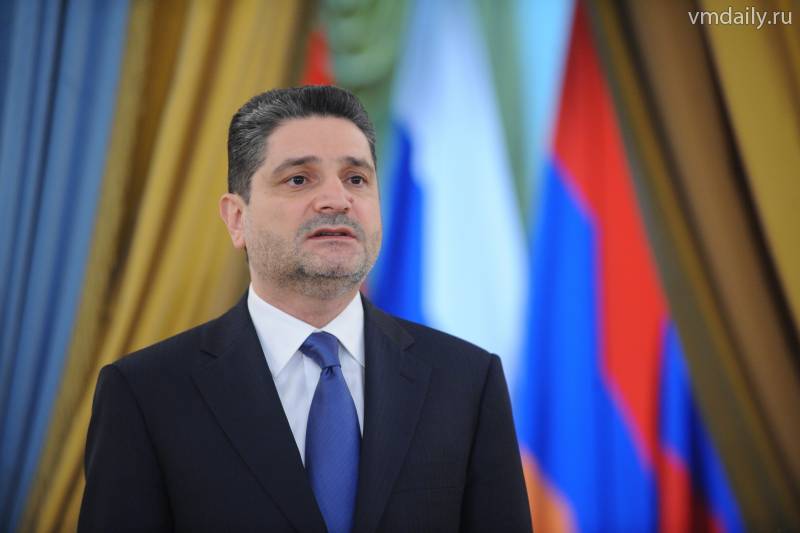


ArmInfo. On August 29, Chairman of the Eurasian Economic Commission (EEC) Board Tigran Sargsyan met with Indian Ambassador to Russia Pankaj Saran. The sides discussed trade and economic cooperation between the Eurasian Economic Union (EEU) and India.
Tigran Sargsyan said that the EEC gives high priority to establishment of a dialogue with India. He recalled that in June 2015 a joint research group was set up to study the expediency of conclusion of a free trade area agreement between the EEU and India. The group will present the relevant report in September. "India is one of the rapidly growing economies in the world and we are sure the country will have a great future. All the member states of the EEU seek to have such a trade partner. In addition, the EEU-India cooperation will contribute to implementation of large-scale infrastructure projects in the region," he said.
Ambassador Saran, in turn, said that India keeps a close watch on the ongoing developments in the Eurasian space and wants to become a part of the ongoing processes. "India is willing to cooperate with the EEU in a variety of formats. I think we should take a wider view of cooperation capacities. In that case, it will be easier to find common interests," he said. He also expresses confidence that India can make its own contribution to the development of the Eurasian space.
The Eurasian Economic Commission is the permanent regulatory body of the Eurasian Economic Union (EEU). It started work on February 2, 2012. The main purpose of the Eurasian Economic Commission is ensuring the functioning and development of the EEU, and developing proposals for the further development of integration. Currently there are five EEC countries: The Republic of Armenia, the Republic of Belarus, the Republic of Kazakhstan, the Kyrgyz Republic and the Russian Federation. The EEC has supranational regulatory body status and its activity is guided by the interests of the participating countries of the Eurasian Economic integration project in general, not motivating its decisions by any interests of national Governments. Decisions of the Commission are obligatory for execution on the territory of the EEU Member States. The basis of the decision to establish the EEC lies in the understanding that the five countries together will not only be able reduce the negative impacts of global instability, but also actively position themselves in foreign markets. The Eurasian Economic Union is open to other States that share the goals of this Association and are ready to assume the required obligations.
On Jan 1, 2016, Kazakhstan assumed the chairmanship of the Eurasian Economic Union. President of Kazakhstan Nursultan Nazarbayev became the head of the Supreme Eurasian Economic Council. On February 1, ex-prime minister of Armenia Tigran Sargsyan will lead the Eurasian Economic Commission.